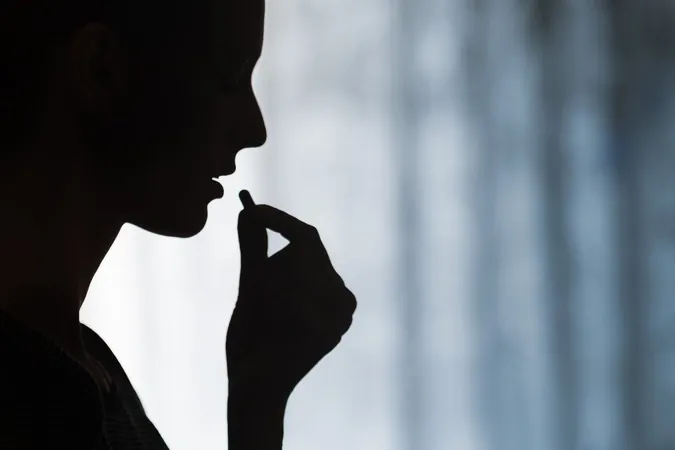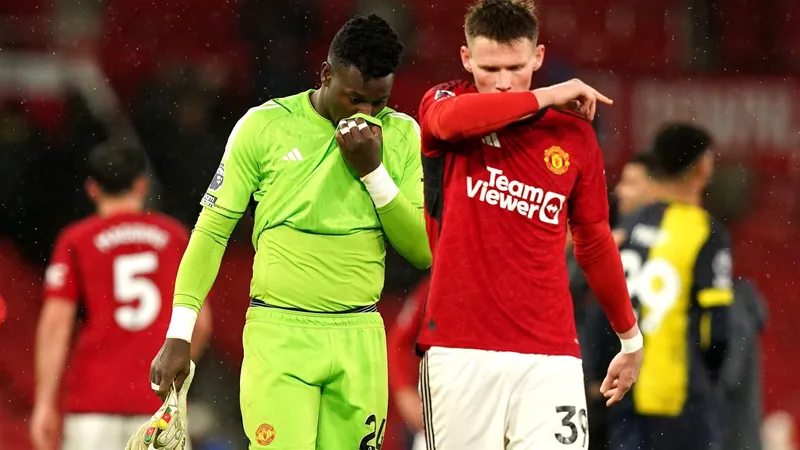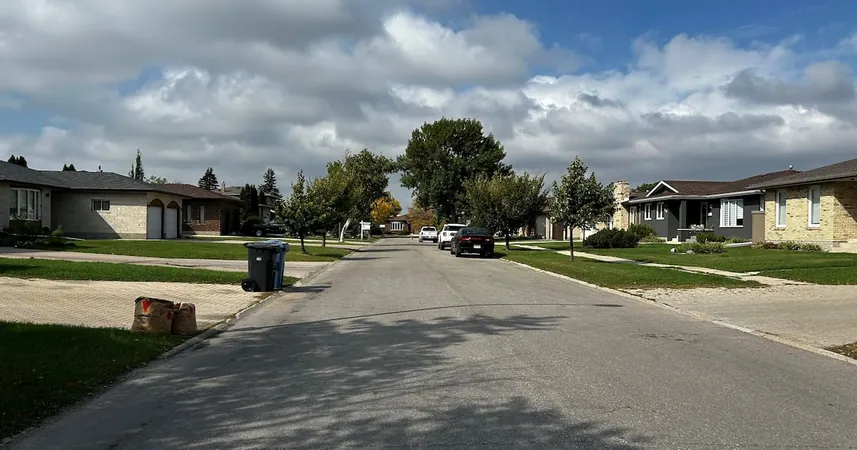
The Secret Pill Celebrities Swear By for Nerves: What You Need to Know
2025-09-18
Author: Olivia
Hollywood's New Go-To Anxiety Fix
In Tinseltown, a little blue pill is making waves, but it’s not the one you think. Meet propranolol, a beta blocker initially created for heart issues, now infiltrating dressing rooms, red carpets, and even first dates.
Stars Speak Out on Their Secret Weapon
This year, celebs like Kristen Bell, Rachel Sennott, and Natasha Rothwell have openly admitted to using beta blockers to ease their nerves at high-profile events. And they’re not the first to do so; in 2022, Khloe Kardashian revealed that she borrows her mother’s pills to calm her jitters, while at the previous Golden Globes, Robert Downey Jr. joked he took one to navigate the evening with ease.
How Did a Heart Medication Become the Talk of the Town?
Understanding the appeal of beta blockers requires a dive into their history. Developed in the 1960s for heart-related conditions such as high blood pressure and arrhythmias, these medications quickly garnered attention for their additional benefits, like alleviating migraines and symptoms of hyperthyroidism.
The Science Behind Propranolol's Calming Effects
The calming effects of beta blockers on anxiety were first noted in 1965 during trials for rapid heart rates. While propranolol is approved for anxiety treatment in the UK, it’s often prescribed off-label in the U.S. due to FDA guidelines.
So how does it work? Simply put, beta blockers counteract adrenaline’s effects. When these medications bind to beta receptors in the heart, they effectively slow down the heart rate and lessen contractions. This leads to lower blood pressure and less physical manifestation of anxiety—think racing hearts and shaky hands.
Do Beta Blockers Really Help?
Research on the effectiveness of propranolol for anxiety presents mixed results. Some studies indicate that it can significantly reduce anxiety and depression, especially when compared to a placebo.
Other investigations comparing different doses of propranolol reveal both can improve anxiety symptoms, yet a recent review stresses the need for more rigorous research, as many studies have small sample sizes.
The Non-Addictive Alternative? Not Without Risks!
Unlike Valium, propranolol is not addictive, nor does it produce the euphoric effects often associated with anxiety medications. However, it is accompanied by potential side effects, which can range from mild issues like dizziness and fatigue to serious complications like heart failure and breathing difficulties.
The Prescription Realities
Despite its absence from national guidelines, doctors are increasingly opting for propranolol as a stopgap for patients facing long waits for therapy or hesitant to take antidepressants. It might help with specific anxiety-inducing situations like giving speeches, but it’s not a panacea for chronic anxiety.
What You Should Know Before Popping a Pill
Before you raid your mom's medicine cabinet for that red-carpet calm, realize that propranolol isn’t a magic cure-all. It won’t obliterate your fear of public speaking or guarantee smooth first dates, but it might just steady your shaking hands. For long-term anxiety, evidence-based approaches like cognitive behavioral therapy and mindfulness remain the gold standard.









 Brasil (PT)
Brasil (PT)
 Canada (EN)
Canada (EN)
 Chile (ES)
Chile (ES)
 Česko (CS)
Česko (CS)
 대한민국 (KO)
대한민국 (KO)
 España (ES)
España (ES)
 France (FR)
France (FR)
 Hong Kong (EN)
Hong Kong (EN)
 Italia (IT)
Italia (IT)
 日本 (JA)
日本 (JA)
 Magyarország (HU)
Magyarország (HU)
 Norge (NO)
Norge (NO)
 Polska (PL)
Polska (PL)
 Schweiz (DE)
Schweiz (DE)
 Singapore (EN)
Singapore (EN)
 Sverige (SV)
Sverige (SV)
 Suomi (FI)
Suomi (FI)
 Türkiye (TR)
Türkiye (TR)
 الإمارات العربية المتحدة (AR)
الإمارات العربية المتحدة (AR)